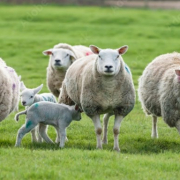5 ways to protect generational and inherited farming assets on divorce
Denney King specialises in complex divorces, including those in which there are inherited farming assets such as a family farm. Mercedes King-Jones and the family team understand the unique challenges that farmers face when going through a divorce. Inherited assets carry sentimental and financial significance, and we are here to advise our clients on how to protect them during divorce proceedings.
The family farm and farmhouse are often inherited assets which are not just a home, but also a way of life and an integral part of a farmer’s livelihood. The team at Denney King are experienced in advising on the complexities surrounding these assets. We are mindful that the family home is central to the farming business and we work closely with our clients, their accountants and land agents to explores strategies and considerations to safeguard inherited assets and to protect the farm during and after the divorce.
Inherited assets are typically property or money received from a family member or loved one. These assets can take various forms, such as property, land, investments, cash, or even a family business. However, the key distinction is that they were received by one of the parties as a gift, rather than acquired by both of them during the marriage.
We consider the history of the farm and any previous decisions made for tax planning purposes. We are also aware that sometimes the decision makers are not always a party to the divorce proceedings, but may be a separate influential third party.
In many circumstances, inherited assets are considered separate property and these assets are often treated differently from jointly owned or marital assets.
5 ways in which you can protect inherited farming assets include:
- Maintaining separate ownership – One of the most effective ways to protect inherited assets is to ensure they remain separate. This may involve holding land in your sole name and keeping any money received in a separate bank account. Mixing inheritance with marital assets can make it more challenging to claim that they should be “ringfenced”.
- Prenuptial Agreement or Postnuptial Agreement – You may wish to consider entering into a prenuptial or postnuptial agreement with your spouse to explicitly state that inherited assets are separate property.
- Documentation – Maintaining detailed records and documentation regarding the inheritance can be crucial in proving the assets’ separate status in case of a divorce. Examples of these documents can include wills, probate records, bank statements, and any other evidence that clearly demonstrates the assets were inherited.
- Avoid using inherited assets for marital expenses – Using inherited assets for the benefit of the marriage or family, such as purchasing the marital home or contributing to joint accounts, can blur the line between separate and marital property.
- Consult with a Lawyer – Engage the services of an experienced family lawyer who can provide legal guidance and help you navigate the complexities of divorce, especially when inherited assets are involved.
In addition to our specialist divorce team, we also work closely with our private client and rural property teams to provide a well-rounded approach for our clients. This close collaboration allows us to address all the complex issues that arise during a farming divorce, including tax implications, inheritance, succession planning and protection of the family farm for future generations.
At Denney King, we are committed to providing our clients with the support and expertise they need to navigate the difficulties of farming divorce. Our specialist knowledge, combined with our compassionate and supportive approach, allows us to provide comprehensive and effective solutions for our clients.
Contact Mercedes and Holly to find out how we can help you and support you through this process.



